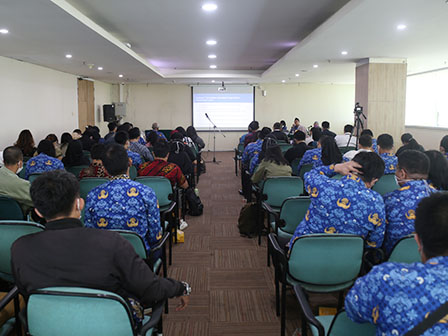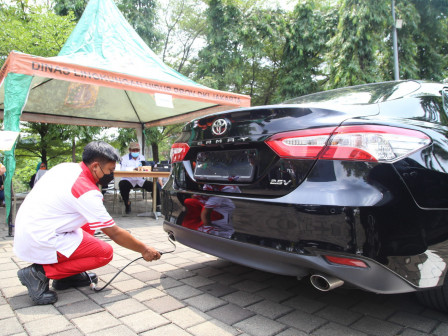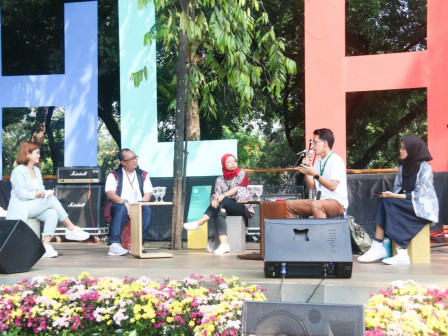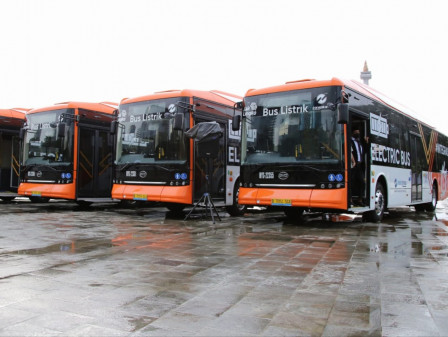Environment Agency Holds Public Expose for Air Pollution Control in Jakarta
Reported by Anita Karyati | Translated by Nugroho Adibrata
The Jakarta Environment (LH) Agency held a public expose on air pollution control strategies (SPPU), which was opened in the Meeting Room on the 23rd Floor of Block G, City Hall Building, Central Jakarta, Monday (9/19).
This is to open discussions and potential collaborations in implementing SPPU
Development and Environment Assistant, Afan Andriansyah said that the public presentation was held to prepare an action plan to improve air quality in Jakarta, which was packaged in the SPPU.
"This is to open discussions and potential collaborations in implementing SPPU. We invite representatives of the central government, surrounding local governments, academics, community institutions, and the media," he said.
Jakarta to Apply Parking Disincentive for Vehicles Failing EmissionsAccording to him, the SPPU was prepared as an effort by the Jakarta administration to improve air quality, which is a priority for the Regional Medium-Term Development Plan (RPJMD). It was done according to a review of the Jakarta Air Quality Index (IKU), which was in the lowest position in 2019.
"By doing so, we get an agreement on the SPPU's actions and targets. Hope what we are doing can have a good impact on the citizens of Jakarta regarding the issue of air pollution," he expressed.
Jakarta LH Agency Head, Asep Kuswanto explained the strategies that will be taken in controlling air pollution were improving governance and reducing air pollutant emissions from mobile and stationary sources.
"In total, there are 75 action plans, and each point is detailed. We expect that it will have a good impact on improving air quality in Jakarta," he hoped.
Thus far, his agency is currently entering into a cooperation agreement (PKS) with the cities of Tangerang and Bekasi. One of the points of this collaboration is the implementation of emission tests and the formulation of joint policies. Its collaboration was expected to be sustainable with other cities.
"Because without cooperation with other cities around Jakarta, air control cannot work properly," he concluded.





